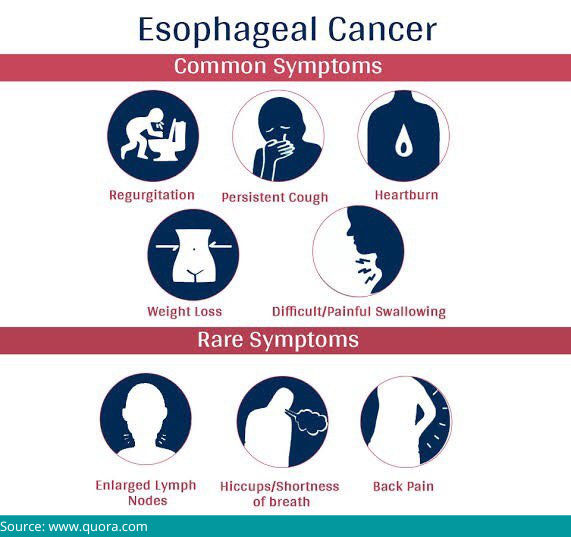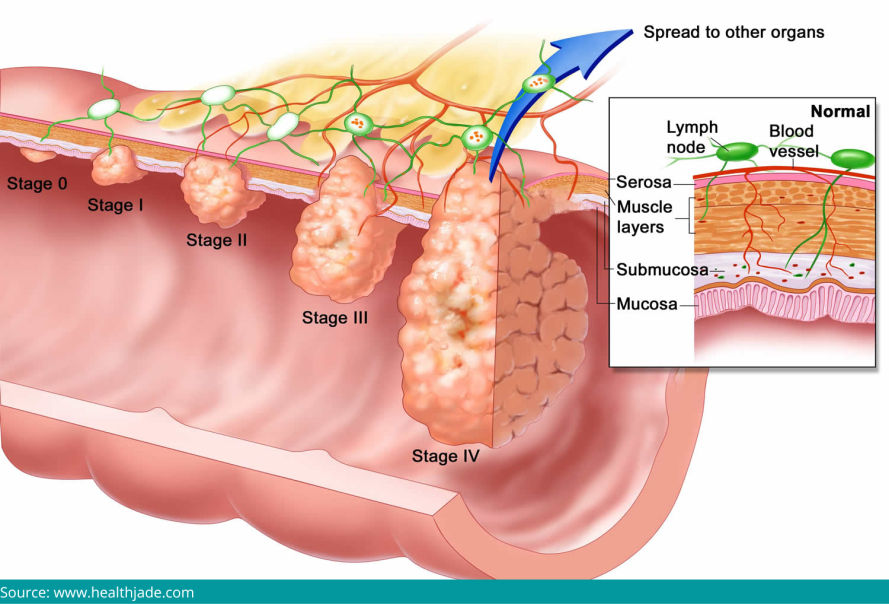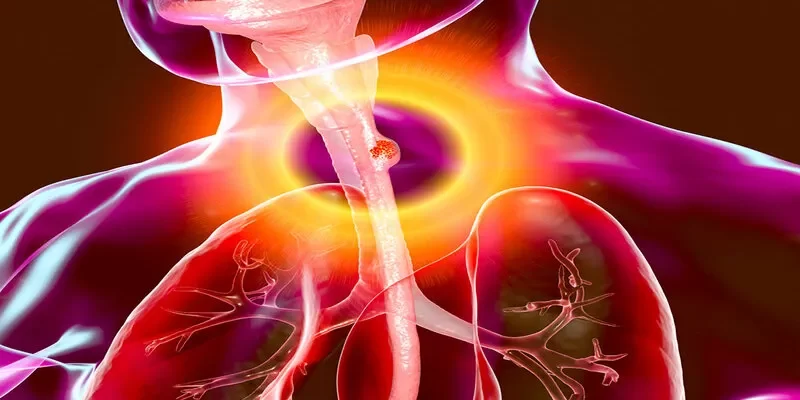Esophageal cancer arises when cancer cells start growing in the esophagus, the tube-like structure connecting your throat and stomach. The esophagus transports food from your mouth to the stomach. Cancer begins in the internal lining of the esophagus and may expand to external layers and other organs of your body (metastasis).
Esophageal cancer can be divided into 2 categories:
- Squamous cell carcinoma – Squamous cells cover your inner esophagus, and squamous cell carcinoma can form anywhere along the esophagus.
- Adenocarcinoma – Adenocarcinoma arises from gland cells and occurs when the squamous cells are substituted by gland cells. This cancer typically develops in the lower end of the esophagus near the stomach and is thought to be primarily connected to your lower esophagus being exposed to acid.
Fighting any cancer can be extremely exhausting, and you should not have to endure it alone. Dr. Sandeep Nayak, a renowned cancer specialist in Bangalore, India, is dedicated to providing world-class cancer therapy that is personalized for each patient.
What are the symptoms of esophageal cancer?

The following are some of the symptoms and signs of esophageal cancer.
- The most common symptom is dysphagia, which is difficulty in swallowing
- Regurgitation, which means the food you consumed comes back up into your mouth
- Unexplained weight loss
- Chest pain that originates in the center of your chest or, less frequently, in your back or shoulder
- Persistent heartburn or indigestion
- Having a raspy voice or a persistent cough
- Odynophagia, which means swallowing is painful
- Having the sensation that something is lodged in your throat
Bangalore’s acclaimed surgical oncologist, Dr. Sandeep Nayak, says that it is not necessary that you will develop esophageal cancer if you have any of these symptoms. On the other hand, a risk factor influences the likelihood of contracting a disease.
As a result, if you do experience any of these symptoms, it is critical to consult a doctor as soon as possible.
How is esophageal cancer diagnosed?
The following tests and methods are used to diagnose esophageal cancer:
- Barium swallow: You drink a fluid containing barium; it coats your esophagus, making it stand out in the X-ray, thus allowing the doctor to identify any problems or disorders.
- Endoscopic ultrasound: A thin lit tube is passed down your throat to examine your esophagus. The sound waves aid your doctor in understanding the extent of cancer in the surrounding tissues.
- Biopsy: The doctor can retrieve tissues or cells from your esophagus during the endoscopy to examine them under a microscope and see if cancer is present.
Other procedures, like CT (computed tomography) scans, PET (positron emission tomography) scans, laparoscopy, and thoracoscopy, may be used to see if cancer has migrated outside of the esophagus or metastasized.
Dr. Sandeep Nayak, a proficient cancer specialist in India, adds that this is referred to as “staging,” and your doctor requires the information while planning your therapy.
What are the different stages of esophageal cancer?

Esophageal cancer is classified into 4 stages (I through IV). The stages are as follows:
- Stage 0: Only the layer of cells lining the esophagus contains abnormal cells which are not yet cancerous.
- Stage I: Cancer cells have started developing in the cells lining the esophagus.
- Stage II: The malignancy has spread to the muscular layer or the external wall of your esophagus. Furthermore, the malignancy may have expanded to 1 or more neighboring lymph nodes (small clusters of cells that are part of your immune system).
- Stage III: Cancer has spread further into the connective tissue wall or inner muscle layer. It may have spread beyond the esophagus, into nearby organs, and to more lymph nodes around the esophagus.
- Stage IV: The most advanced step of esophageal cancer where cancer has progressed to other organs and lymph nodes farther from the esophagus.
How is esophageal cancer treated?
Treatment for esophageal cancer is determined by a number of factors, including the tumor’s stage and the patient’s overall condition.
- Surgery: The esophagus may be removed in its entirety or partially.
- Radiation therapy: Treatment that involves the use of radiation to kill cancer cells.
- Chemotherapy:Potent drugs that target cancer cells throughout the body. Chemotherapy is usually used in conjunction with surgery and radiation therapy.
- Targeted therapy: Powerful medications are administered to attack the malignant cells while minimizing side effects.
- Immunotherapy: Aids the immune system in its fight against cancer cells.
- Photodynamic therapy (PDT): PDT is a treatment that uses special laser lights to target cancer cells.
- Electrocoagulation: Electric current is used to destroy the cancer cells.
- Endoscopic mucosal resection: Small early cancers can be treated by removing the inside lining of the esophagus.
Radiofrequency ablation: Radiofrequency energy is sometimes used to target cancer cells in early cancers. Dr. Sandeep Nayak, a highly experienced oncologist in Bangalore, adds that esophageal cancer treatment, like many other malignancies, has a better chance of success if identified early.
How curable is cancer of the esophagus?
Esophageal cancer, often known as cancer of the food pipe, is a severe disease. Cancer of the esophagus is a treatable condition in most instances, though the cure percentages are low.
According to the NCI (National Cancer Institute), 5 – 30% of patients who receive proper definitive treatments have a 5-year survival rate. However, it depends on several factors, including what stage the cancer was diagnosed and the patient’s overall condition.
Patients diagnosed at an early stage of the disease have an increased chance of surviving. 40% of those who receive curative treatment will live for a year or longer, 15% will live for 5 years, and 10% will live for 10 years or longer. It is dependent on the cancer stage and how soon it was detected. The stage of cancer determines the prognosis.
Dr. Sandeep Nayak is committed to helping his patients and strives to deliver comprehensive and effective stomach and esophageal cancer treatment in Bangalore, India.
Conclusion
Esophageal cancer, often known as cancer of the food pipe, is a severe disease. Cancer of the esophagus is a treatable condition in most instances, though the cure percentages are low.
According to the NCI (National Cancer Institute), 5 – 30% of patients who receive proper definitive treatments have a 5-year survival rate. However, it depends on several factors, including what stage the cancer was diagnosed and the patient’s overall condition.
Patients diagnosed at an early stage of the disease have an increased chance of surviving. 40% of those who receive curative treatment will live for a year or longer, 15% will live for 5 years, and 10% will live for 10 years or longer. It is dependent on the cancer stage and how soon it was detected. The stage of cancer determines the prognosis.
Dr. Sandeep Nayak is committed to helping his patients and strives to deliver comprehensive and effective stomach and esophageal cancer treatment in Bangalore, India.

